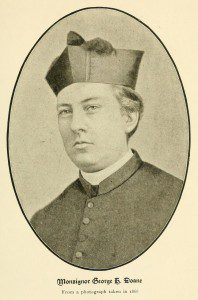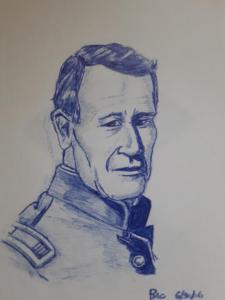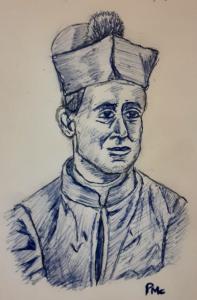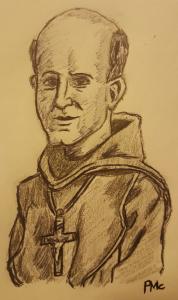 I thank God that I can say, “It was a true report that I heard in mine own land,” of the glory and blessedness of the Catholic Church. “Mine eyes have seen it, and behold the half was not told me; it exceeded the fame which I had heard.” Nay, when I remember the doubts and misgivings which I felt when I was a Protestant, and the many fears with which I shrank from joining myself to a system which I had long believed to be corrupt and horrible, and when I compare these feelings with the certainty, and peace, and blessedness which I have found since I had grace to make the venture, it seems to me, as if the change which I have made can be compared only to the happy death of the just, from which in years gone by they perhaps shrunk with dread, and hardly dared to look forward to it; but to which they forever look back as their new birth into a state blessed, beyond all that the heart of man can conceive. Oh, that every one of my dear friends, who are still trembling on the brink of that which seems to them so dark a river, would take courage by our example and risk all upon the faith of the words of Christ. And for myself I need ask nothing else, nor is there anything others need ask for me beyond the grace of perseverance, that, having been sought out by the grace of my Lord and Saviour, and brought into the Church of His Mercy, contrary to my own deserts, I may endure unto the end, and through the blood of my Lord and Saviour may lay hold of eternal life. Amen.
I thank God that I can say, “It was a true report that I heard in mine own land,” of the glory and blessedness of the Catholic Church. “Mine eyes have seen it, and behold the half was not told me; it exceeded the fame which I had heard.” Nay, when I remember the doubts and misgivings which I felt when I was a Protestant, and the many fears with which I shrank from joining myself to a system which I had long believed to be corrupt and horrible, and when I compare these feelings with the certainty, and peace, and blessedness which I have found since I had grace to make the venture, it seems to me, as if the change which I have made can be compared only to the happy death of the just, from which in years gone by they perhaps shrunk with dread, and hardly dared to look forward to it; but to which they forever look back as their new birth into a state blessed, beyond all that the heart of man can conceive. Oh, that every one of my dear friends, who are still trembling on the brink of that which seems to them so dark a river, would take courage by our example and risk all upon the faith of the words of Christ. And for myself I need ask nothing else, nor is there anything others need ask for me beyond the grace of perseverance, that, having been sought out by the grace of my Lord and Saviour, and brought into the Church of His Mercy, contrary to my own deserts, I may endure unto the end, and through the blood of my Lord and Saviour may lay hold of eternal life. Amen.
Rt. Rev. Monsignor G.H. Doane
James J. Treacy, ed., Conquests of Our Holy Faith; or, the Testimonies of Distinguished Converts (New York: Fr. Pustet & Co., 1907), 178-179.
NOTE: Born in Boston, George Hobart Doane (1830-1905) was the son of the Episcopal Bishop of New Jersey. After studying medicine, he pursued clerical studies for the Episcopal Church. In 1855, he converted to Roman Catholicism, causing something of a national stir. After studying in Rome, he was ordained a Catholic priest in 1857. He became a priest of the Diocese of Newark, serving for many years as the Rector of St. Patrick’s Pro-Cathedral in Newark. During the Civil War, he briefly served as a chaplain with the Union Army at the Battle of Bull Run. In 1880, he was one of the first American priests to be honored with the title of Monsignor. Doane Park in Newark is named for him, and there is a statue of him at the site.











